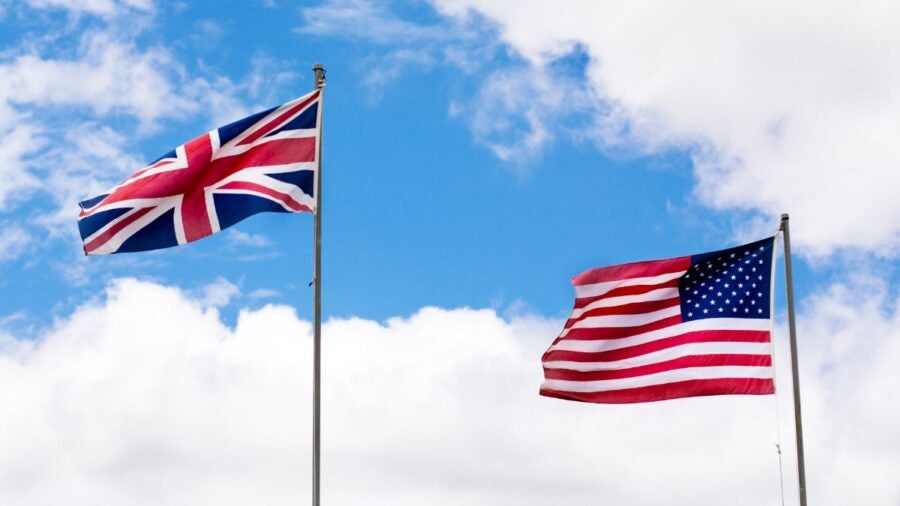
The UK secured a trade agreement with the US on Thursday, becoming the first country to do so since the imposition of sweeping global tariffs by Donald Trump.
Speaking from the Oval Office, the US president said he was “thrilled” to have reached a “breakthrough deal” with the UK, which includes tariff exemptions for UK automobile exports and imports of US beef and ethanol.
The two governments had been negotiating for weeks, following the introduction on 5 April of a 10% import tax on most British goods entering the US and a 25% levy on UK-manufactured cars, steel and aluminium.
Under the agreement, import taxes on UK cars will be reduced to 10% for the first 100,000 units each year and tariffs on British steel and aluminium will be scrapped. In return, the UK agreed to lift tariffs on ethanol imported from the US and to give US aerospace manufacturers preferential rates on some UK-manufactured parts.
The deal also includes a reciprocal agreement allowing both countries to sell 13,000 metric tonnes of beef to the other, tariff free.
Prime Minister Kier Starmer stressed there would be no weakening of British food standards as a result of this deal, adding that the “historic” deal “delivers for British business and British workers, protecting thousands of British jobs”.
However, the US’ baseline 10% tariff on UK goods will remain unchanged.
How businesses responded to the UK-US trade deal
The UK business community has broadly welcomed the announcement.
The chief executive of the Confederation of British Industry, Rain Newton-Smith, commended the UK government, saying: “A clear message is being sent to the international community: the UK is a fierce advocate of free and fair trade and a reliable partner with whom to do business. As one of our largest trading partners, a strong relationship with the US will always be welcomed by business to bolster our mutual competitiveness and kickstart growth.”
With exports totalling £59bn, the UK sent more goods to the US last year than to any other country. Automobiles were the top export, accounting for £8.3bn of that total.
Mike Hawes, the CEO of the Society of Motor Manufacturers and Traders, says the agreement is “great news” for the UK car industry: “The application of these tariffs was a severe and immediate threat to UK automotive exporters, so this deal will provide much-needed relief, allowing both the industry and those that work in it to approach the future more positively.”
Adrian Mardell, chief executive at Jaguar Land Rover, was also pleased by the deal and agrees that reduced levy will provide greater certainty for the UK car industry.
Some companies, including Boeing, the American aerospace giant, have already benefitted from the tariff cuts. British Airways’ parent company, International Airlines Group, agreed to purchase 32 Boeing planes following the announcement of the trade agreement.
What is missing from the deal?
Some industries are awaiting further clarity on the details of the agreement. The director general of UK Steel, Gareth Stace, told Times Radio that his industry does not yet know when it will take effect, or fully understand its terms.
“There may be issues around ownership, around where the steel is made, and until we see those details, we don’t know whether this heavy burden will be lifted from us,” he says.
As for agriculture, Tom Bradshaw, the president of the National Farmers Union, acknowledged the UK government’s efforts, but claims the sector is being used as a makeweight in the UK-US deal.
“Our biggest concern is that two agricultural sectors [beef and ethanol] have been singled out to shoulder the heavy burden of the removal of tariffs for other industries in the economy,” he says. “While we understand this, we also know that today is the start, not the end, of a process, and UK agriculture cannot continue to shoulder such imbalances in future negotiations.”
The UK-US deal comes days after the UK and India struck a free-trade agreement that will make it easier for UK businesses to export whisky and cars to India and reduce taxes on Indian-manufactured clothing and footwear. The Department for Business and Trade estimates the deal could increase the total trade between the two countries by 38.8%, to £25.5bn, by 2040.

The UK secured a trade agreement with the US on Thursday, becoming the first country to do so since the imposition of sweeping global tariffs by Donald Trump.
Speaking from the Oval Office, the US president said he was “thrilled” to have reached a “breakthrough deal” with the UK, which includes tariff exemptions for UK automobile exports and imports of US beef and ethanol.
The two governments had been negotiating for weeks, following the introduction on 5 April of a 10% import tax on most British goods entering the US and a 25% levy on UK-manufactured cars, steel and aluminium.





